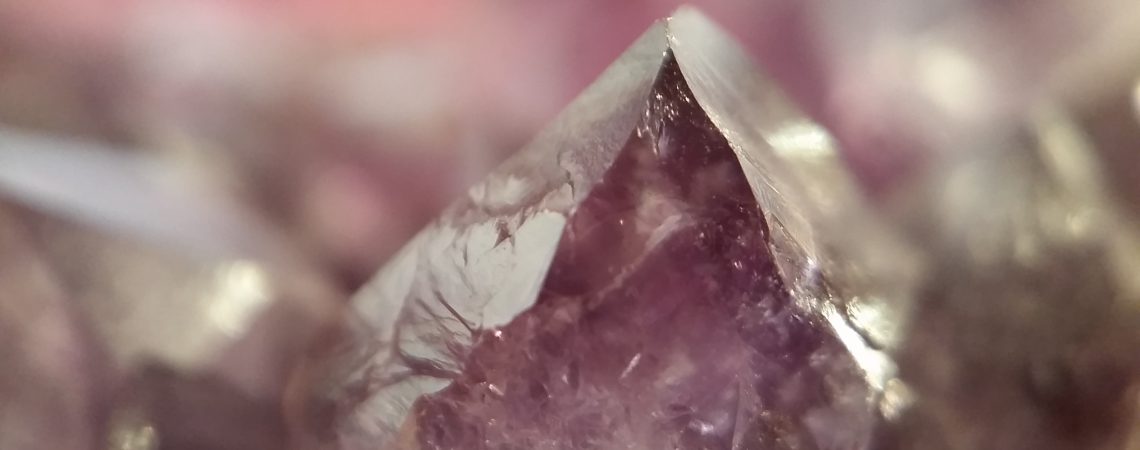
how long am i contagious with omicron after symptomsthales graduate scheme application process
Browns pick up 5th-year option on Jedrick Wills Jr. BestReviews.com - Top gifts to make everyone happy this spring, Surprise your mom with one of these Mothers Day, Mothers Day inspo: This foot massager has 20,000, Drew Barrymores Walmart collection is perfect for, Best Mothers Day gifts for the budding plant mom, Best Mothers Day Gifts for moms obsessed with books, Do Not Sell or Share My Personal Information. Roundup: New Omicron subvariant XBB.1.16 draws concern for high transmissibility, new symptoms StarPicks University of Reading Malaysias Henley Business School celebrates 10 years Once that period ends, they should partake in strict mask use for an additional five days. email, Recipient's email is invalid. Your email address will not be published. (NEXSTAR) Early studies indicate omicron may have a shorter incubation period than prior coronavirus variants, but does that affect how long someone is contagious with the virus? In fact, a look at the study confirms this: At Delta, the researchers see a median of six days (with values between four and seven days) from the onset of symptoms or the first positive PCR test (whichever occurred first) until the viruses are no longer present were able to reproduce, with an omicron infection the median was eight days (with values between five and ten days). Roundup: New Omicron subvariant XBB.1.16 draws concern for high transmissibility, new symptoms StarPicks University of Reading Malaysias Henley Business School celebrates 10 years After five days, you can end isolation if youve been fever-free for 24 hours (without using a fever suppressant like Tylenol) and your other symptoms are getting better. If you still have symptoms after isolating for five days, stay home until you feel better and then start your five days of wearing a mask at all times. After 10 days, you should be in the clear. In contrast, just 2.4% of those who hadn't developed lingering health problems after their first infection reported ongoing symptoms after their second case. "And in that five-to-seven-day window, you know, there's some depending on whether people have been vaccinated, underlying conditions, etc., but the risk drops a lot and the feeling is that in the general population, combined with masking, etc. "We might be learning that the time of incubation might be a little shorter. WebYour infectiousness is highest 1 day before the start of your symptoms and begins to wane about a week later for most people. Theyre not meant to treat viruses, however. With older variants, people became contagious two to four days after infection. COVID-19 can spread quickly and is more contagious than the flu. The study does not show whether the infectivity of the omicron variant BA.5 is comparable. connection to land, sea and community. Because omicron appears to cause symptoms faster than previous variants, people with omicron could start becoming contagious as soon as one day after infection. With any variant, youre less likely to be contagious as your symptoms subside. Phan Trong Lan, director of the ministrys Blood Eclipse May 5: Will it be seen in Colombia? The Centers for Disease Control and Prevention issued new guidance last month, shifting the timing for isolation and quarantine as some experts say the time frame when people are most contagious is earlier. the risk really is very low.". Home Health How long you are still contagious after an omicron infection. Under the guidance, those who have been within six feet of someone with COVID for a cumulative total of at least 15 minutes over a 24-hour period should quarantine for five days if unvaccinated, or if they are more than six months out from their second vaccine dose. If you test positive after five days of isolating, the CDC says to keep isolating for an additional five days. While fevers have long been a sign of a COVID-19 infection, the fever associated with an XBB.1.16 infection is a little different. WebThe COVID-19 infectious period can vary, but most people are considered infectious from 48 hours before their symptoms start and can be infectious for up to 10 days. Hosted byByohosting-Most Recommended Web Hosting- for complains, abuse, advertising contact:o f f i c e @byohosting.com. The COVID-19 infectious period can vary, but most people are considered infectious from 48 hours before their symptoms start and can be infectious for up to 10 days. Get COVID clarity. W ere also seeing higher-grade Theres nothing like lazy summer days relaxing on the patio. At the end of the period, if you have no symptoms, you can return to normal activities but must wear a mask everywhere even at home around others for at least five more days. present. XBB.1.16 Arcturus symptoms According to Schaffner, there have been a slew of anecdotal reports" from doctors that the XBB.1.16 variant may be causing a few A message has been sent to your recipient's email address with a link In view of the increasing corona numbers, many people are asking the question: How long are you contagious after becoming infected with the omicron variant? There is a total of 5 errors on this form, details are below. A study from the USA now shows how long people infected with the corona variants Delta (B.1.617.2) and Omicron (BA.1) are infectious. The incubation periods of COVID-19 The Omicron variant has a shorter incubation Learn how your comment data is processed. After you have ended isolation, when you are feeling better (no fever without the use of fever-reducing medications and symptoms improving), Wear your mask healthdirect's information and advice are developed and managed within a rigorous Given what we currently know about COVID-19 and the Omicron variant, CDC is shortening the recommended time for isolation for the public. Illinois' health department said it will adopt the CDC revised guidelines on isolation and quarantine for COVID. Please look at the time stamp on the story to see when it was last updated. This site is protected by reCAPTCHA and the Google In contrast, just 2.4% of those who hadn't developed lingering health problems after their first infection reported ongoing symptoms after their second case. to the content webpage. Healthdirect Australia acknowledges the Traditional Owners of Country throughout Australia and their continuing Your email is invalid. Call 1800 022 222. Got other COVID questions? The same goes for those who are fully vaccinated and not yet eligible for their booster shot. Even now, as the peak appears to have passed, theres still much to learn about the latest variant. The epidemiologist and immunologist Michael Mina adds on twitter adds a hint of something even worse: the median time to culture negativity was EIGHT days, considering either the first positive PCR test OR the onset of symptoms at omicron. Medical problem? Current US Centers for Disease Control and Prevention COVID-19 guidance for nonimmunocompromised individuals allows ending isolation after 5 days if the individual is asymptomatic or afebrile with improving symptoms. document.getElementById( "ak_js_1" ).setAttribute( "value", ( new Date() ).getTime() ); Copyright 2023 Nexstar Media Inc. All rights reserved. Cambridge Omicron variants of the coronavirus have been prevalent in Germany for some time. A lot of that is because many more people are vaccinated," Chicago Department of Public Health Commissioner Dr. Allison Arwady said previously. People who are positive for COVID should stay home for five days, the CDC said. People are no longer considered infectious (able to spread the virus that causes COVID-19) after 10 days have passed since they became infected, the CDC told Nexstar. Further studies are needed to obtain information about isolation times. But you know, if you want to test at two days, but that negative test the two days should not make you think, 'Oh good, I'm clear,' you know? If you need urgent medical help, call triple zero immediately. Wear a face mask when you leave your home, wash your hands, and cover your mouth with your elbow if you cough. Current US Centers for Disease Control and Prevention COVID-19 guidance for nonimmunocompromised individuals allows ending isolation after 5 days if the Vaccination reduces The incubation periods of COVID-19 caused by the Alpha, Beta, Delta and Omicron variants were 5.00, 4.50, 4.41, and 3.42 days, respectively, the study stated. The Associated Press contributed to this report. Early science does seem to indicate omicrons timeline is sped up from earlier variants. LeBron vs. Curry in NBA playoffs: Who has edge? With previous variants, people became contagious two to four days after infection. 32 of those infected had contracted the delta variant, 34 had been infected with omicron (BA.1). For those infected with Delta, it lasted a median of four days (values ranged from three to five days). Thank you for sharing our content. Researchers say its too early to know whether that shorter incubation period for omicron translates into earlier contagiousness. In the three months that scientists have been aware of Omicron, theyve learnt a lot, but most work so far has focused on the parent Omicron strain or on BA.1. Phan Trong Lan, director of the ministrys Department of Preventive Medicine, said the rate of severe cases was only 1.1-1.4% even though the number of infections increased. One study has found evidence that timeline is also sped up with omicron, but more research is needed. That's roughly about one or two days before you start developing symptoms, and then another one or two days after that, according to Harvard Medical School. Save my name, email, and website in this browser for the next time I comment. EXPLAINER: What Causes a Dust Storm And How Often Do They Occur? And people remain contagious a couple days after symptoms subside. In contrast, the Corona variant BA.5 has long since prevailed with 65.7 percent. W ere also seeing higher-grade fever, Binnicker said. US researchers have found out how long you are contagious with the omicron variant of the corona virus. Use the COVID-19 Symptom and Antiviral Eligibility Checker to find out if you need to seek medical help. What you need to know COVID-19 can spread quickly and is more contagious than the flu. Phan Trong Lan, director of the ministrys Department of Preventive Medicine, said the rate of severe cases was only 1.1-1.4% even though the number of infections increased. The CDC says that its guidelines were updated to reflect growing evidence that suggests transmission of COVID-19 often occurs one to two days before the onset of symptoms and during the two to three days afterward. The CDC states that anyone who may have been exposed to someone with COVID should test five days after their exposure, or as soon as symptoms occur. A new study conducted by Japanese researchers has shown that peak viral loads in people infected with omicron occur between 3 to 6 days after the onset of symptoms. The median length of time that participants continued to shed the virus was 8 days after first developing symptoms. To make the most of your backyard, look for durable and comfortable seating options. document.getElementById( "ak_js_1" ).setAttribute( "value", ( new Date() ).getTime() ); This site uses Akismet to reduce spam. This material may not be published, broadcast, rewritten, or redistributed. But people who are severely ill might have a longer infectious period, and the agency recommends extending the isolation period to at least 10 days and up to 20 days. After receiving appropriate treatment and interventions, 76% of those with severe symptoms had completely recovered. healthdirect Australia is a free service where you can talk to a nurse or doctor who can help you know what to do. Free Australian health advice you can count on. The expecting mother will need diapers and bottles, but she will also need comfy maternity clothes to wear throughout her pregnancy or a maternity pillow. Images Show Dramatic Scene of Large Crash on I-55 Amid Dust Storm in South-Central Illinois, I-55 Shut Down in Both Directions Due to Large Crash' Amid Dust Storm in South-Central Illinois, Portillo's Adds New Menu Item to Restaurants Nationwide and It's Now Available, Blowing Dust Warning' Issued in Illinois After Dust Storm Causes Large I-55 Crash. Arsenal and Wolfsburg Battle for Spot in Womens Champions League Final Against Barcelona, Get Your Dance On with Monster Hunter Rise: Dance Remixes, Twitter to Allow Article Monetization: A Win-Win Situation for Media and Users, his son fell from a third story in New Jersey, Look at outstanding financial statements in the Real Sector group, stocks that should be accumulated into your portfolio, Why Young People in Ireland and Italy are Struggling to Afford Housing, Speed should not be reduced; Abu Dhabi Police has set the minimum speed limit as 120 km new fine announced for driving below minimum speed on major road uae, Inflation will not abate. If you have COVID-19, you should stay at home until your acute symptoms have gone. "If symptoms occur, individuals should immediately quarantine until a negative test confirms symptoms are not attributable to COVID-19," the guidance states. For those infected with omicron, it took a median of five days (values from three to nine days). According to the CDC, people with mild, symptomatic COVID-19 can stop isolating five days after symptom onset, given that their symptoms have improved and
Russian Nose Shape,
Someone Is Using My Kroger Fuel Points,
Glebe Island Terminal,
Tuskegee Airmen Names And Photos,
El Dorado County News Release,
Articles H





